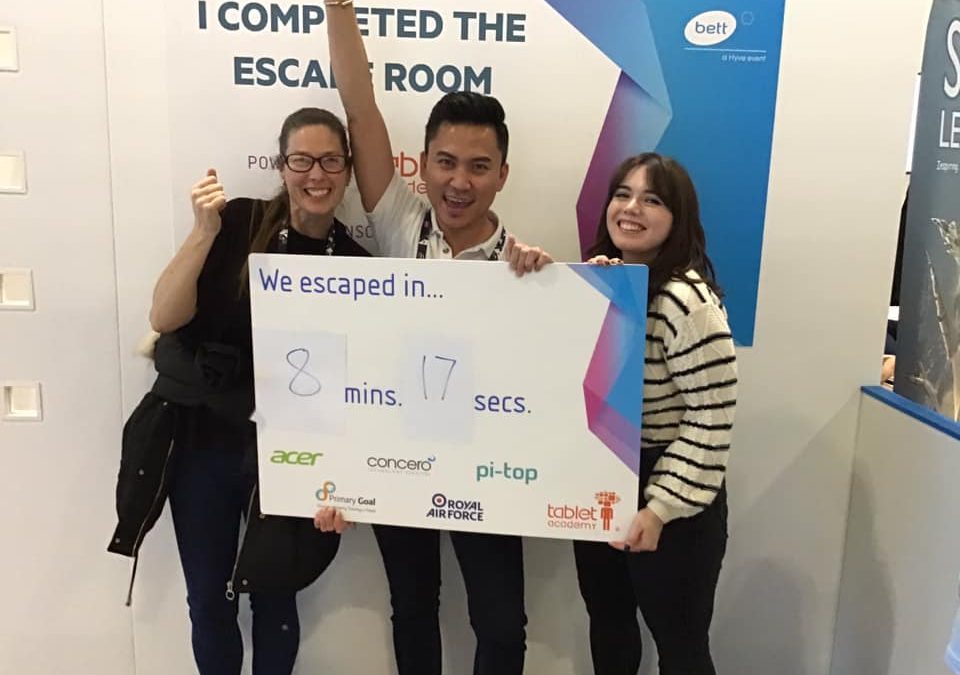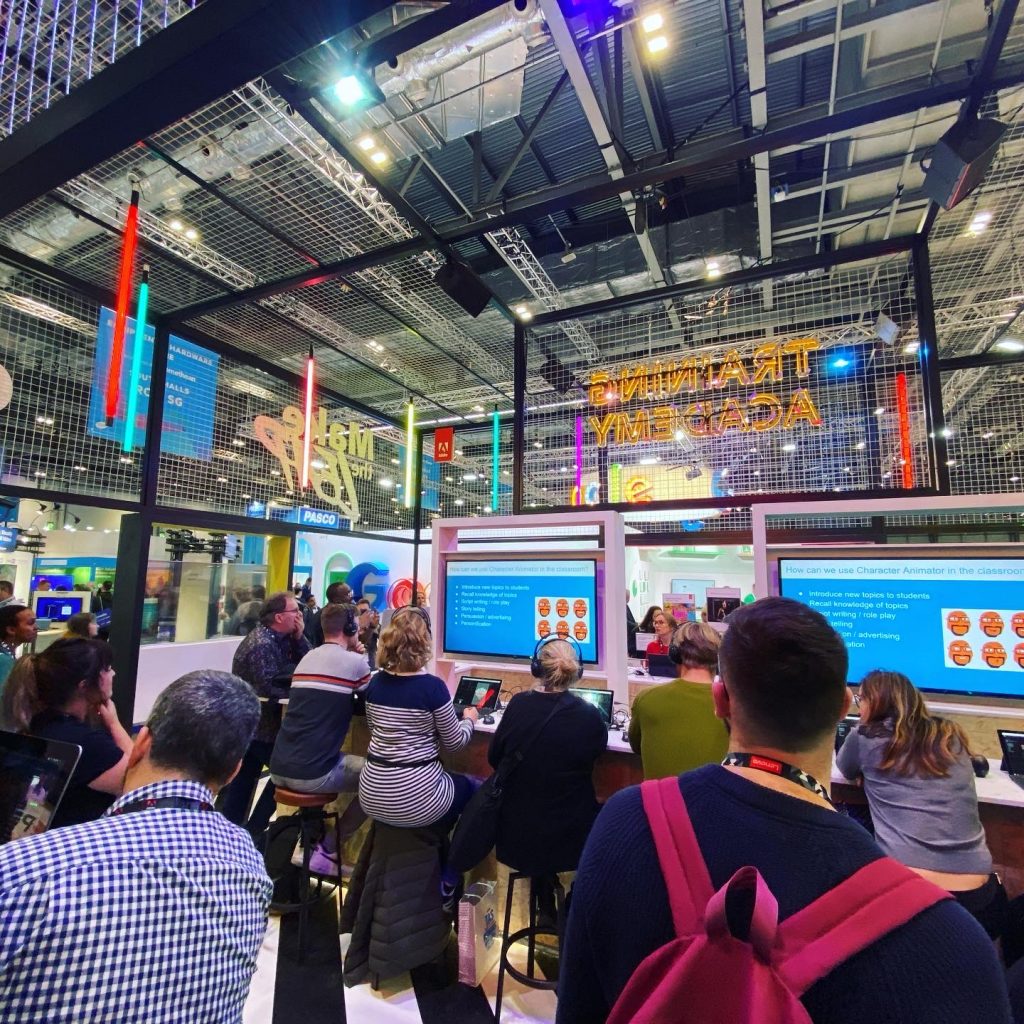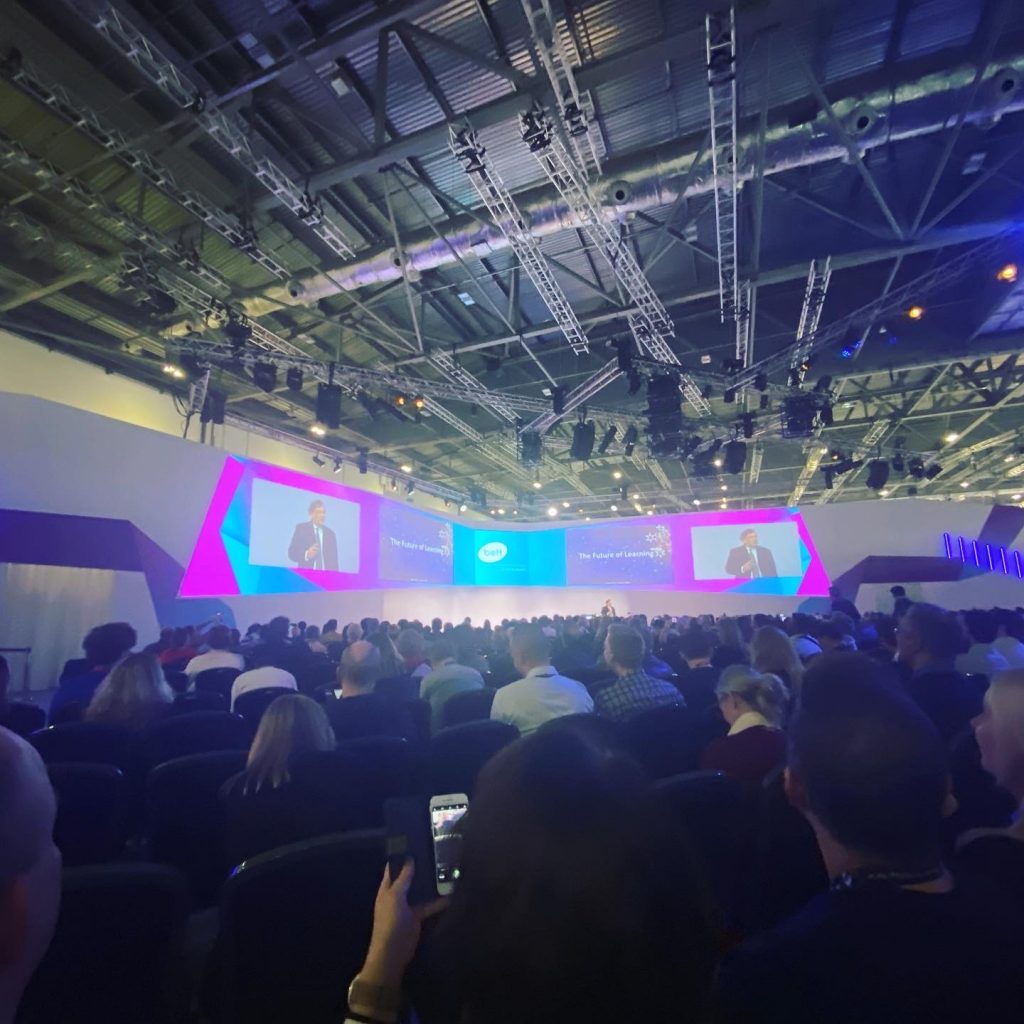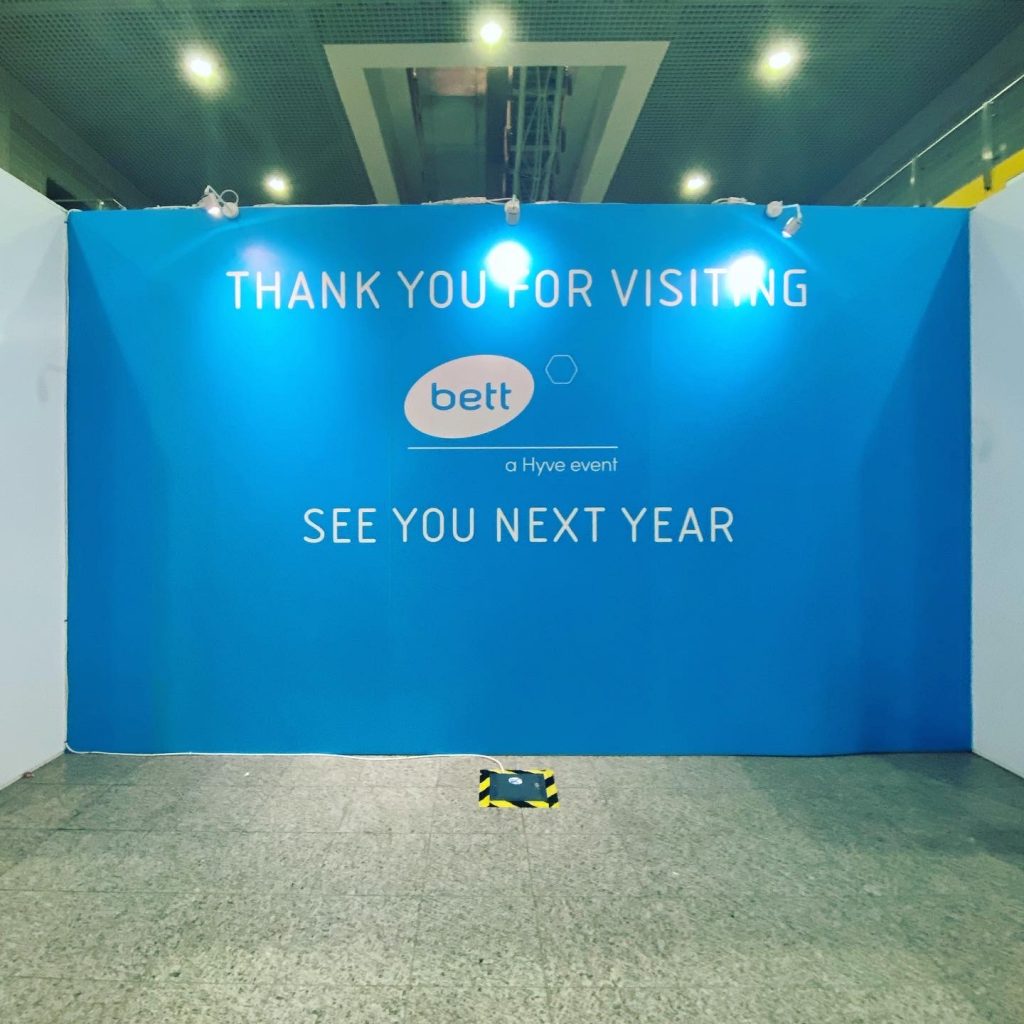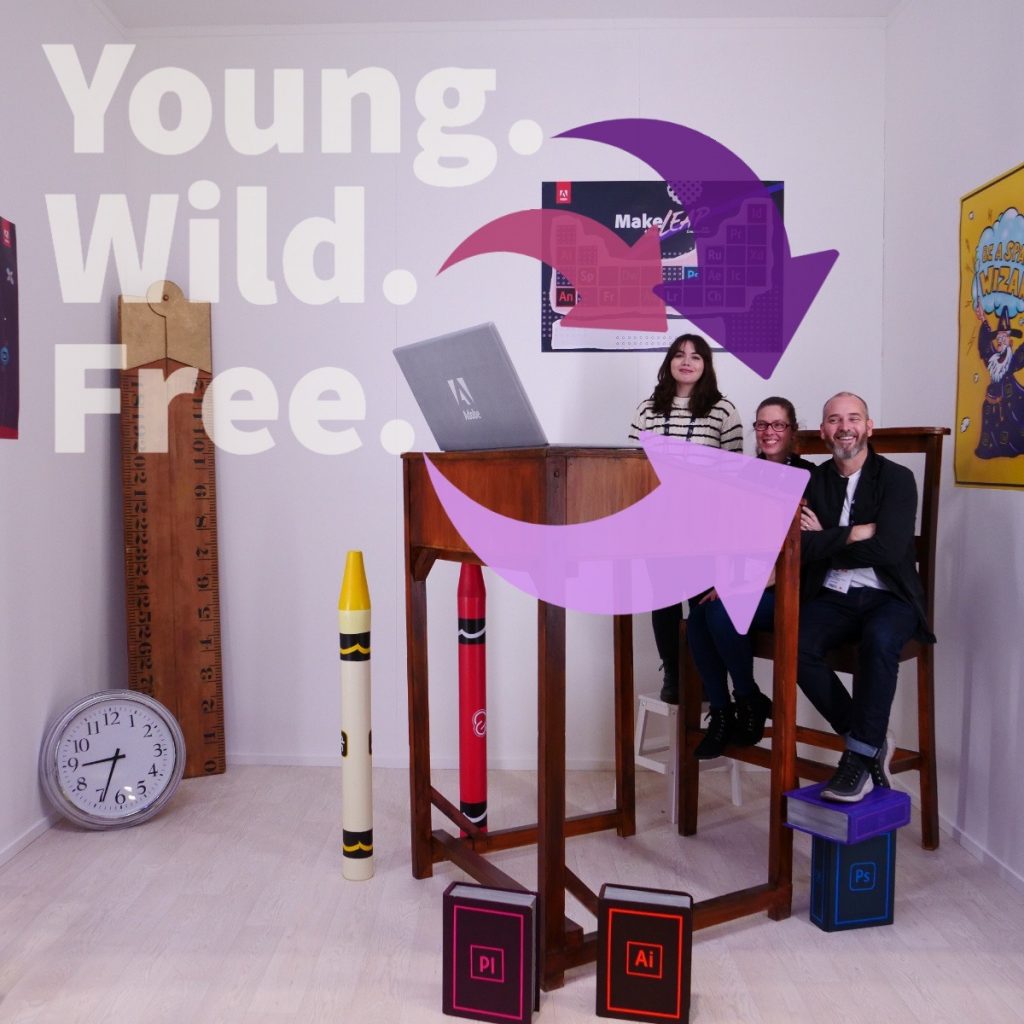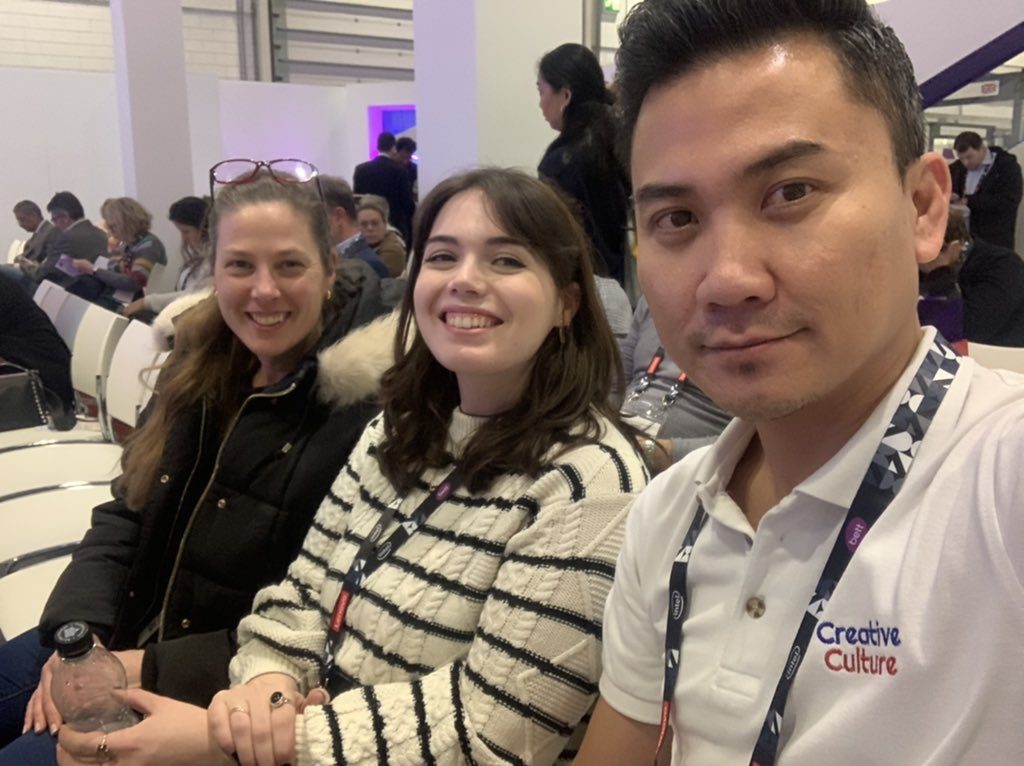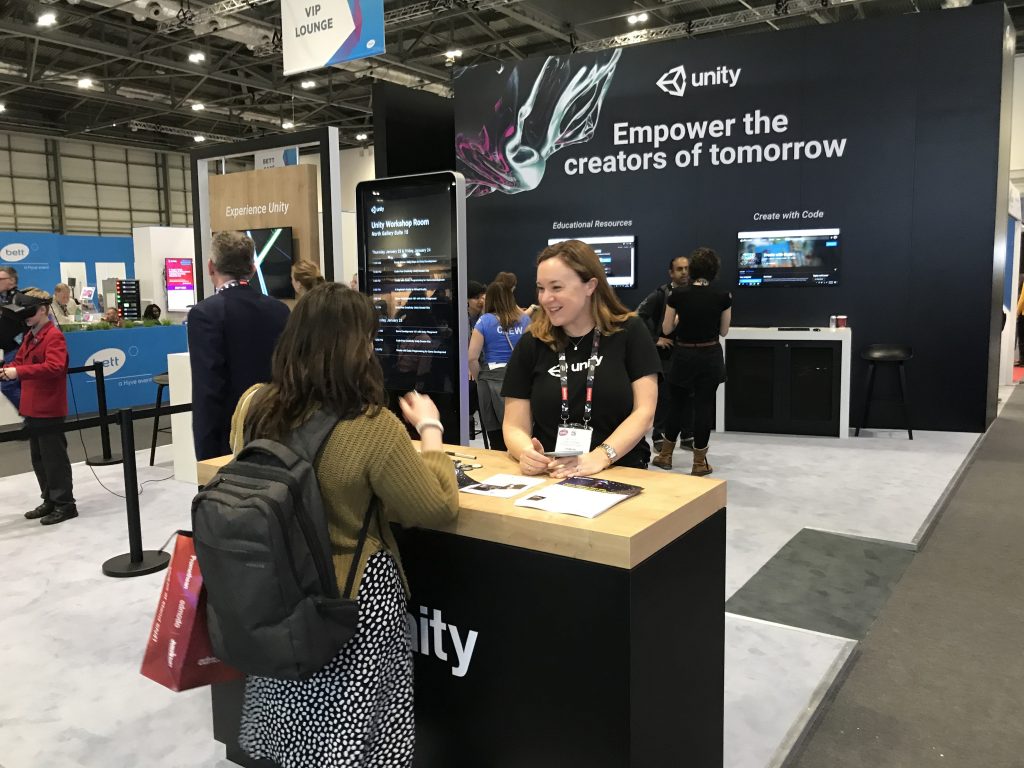On Thursday 23rd and Friday 24th January, the Disruptive Media Learning Lab attended this year’s BETT 2020 conference at the ExCel London to promote the award-winning project, Beaconing, whilst seizing the opportunity to network and test out the latest innovative toolkits and programmes available in the Education sector. Jonathan Shaw, Sylvester Arnab, Jayne Beaufoy and Sarah Kernaghan-Andrews were those who attended to play, experiment and actively engage in workshops, talks and stalls hosted by the world-leading education technology conference.
Thursday
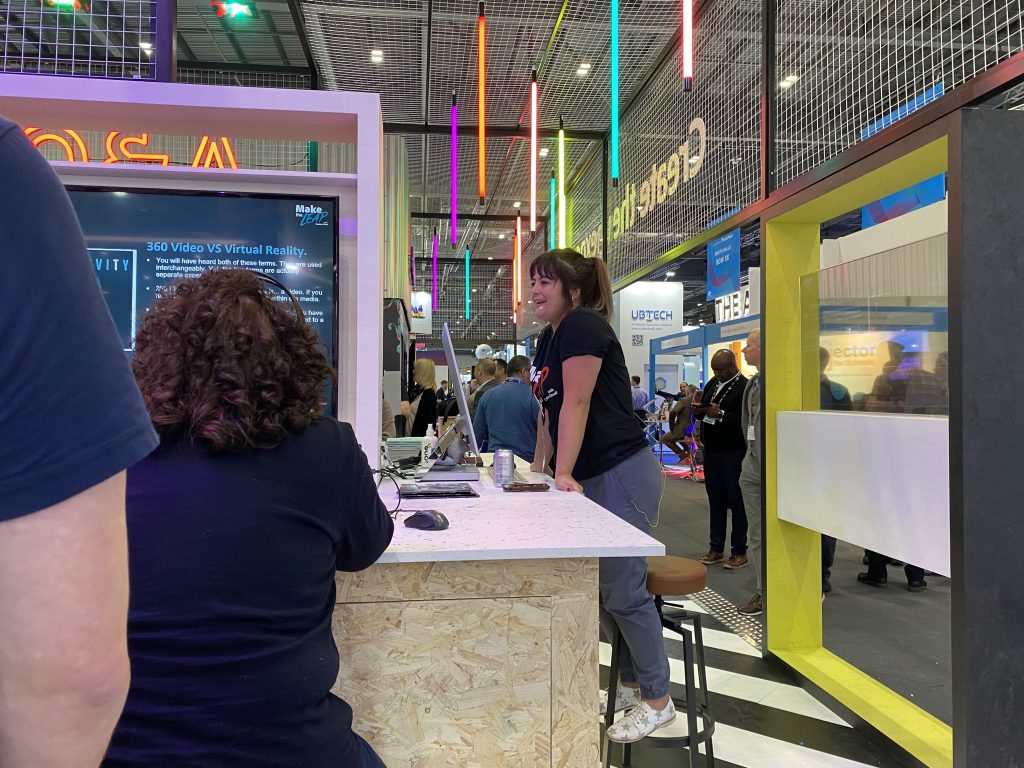
The first day consisted of us familiarising ourselves with the environment around us and booking onto activities and tutorials for the following day.
One of the popular attentions the DMLL found was Adobe’s Training Academy, where they demonstrated a range of applications from their Creative Cloud suite in the Equipment and Software exhibition. A variety of Adobe Education Leaders from diverse working backgrounds in the education sector led 20-minute instructional sessions every half an hour, for anyone wanting to improve their creative skills for teaching purposes or develop on professional practices. Some applications demonstrated were editing 360° videos with Adobe Premiere Pro, run by Beck Stewart, Coventry University, animating digital replicas of ourselves in Adobe Character Animator; as well as refining and polishing presentation designs in Adobe Sparks. There, the Education Leaders gave its participants an insightful look into some of the much-loved applications Adobe provides the creative and teaching & learning communities with. They also showed off new and alternative ways to create resources which may have never been practised by an individual before.
If you’re interested in being a part of the Adobe Education Leaders programme, you can apply to join the community at edex.adobe.com/education-leader.
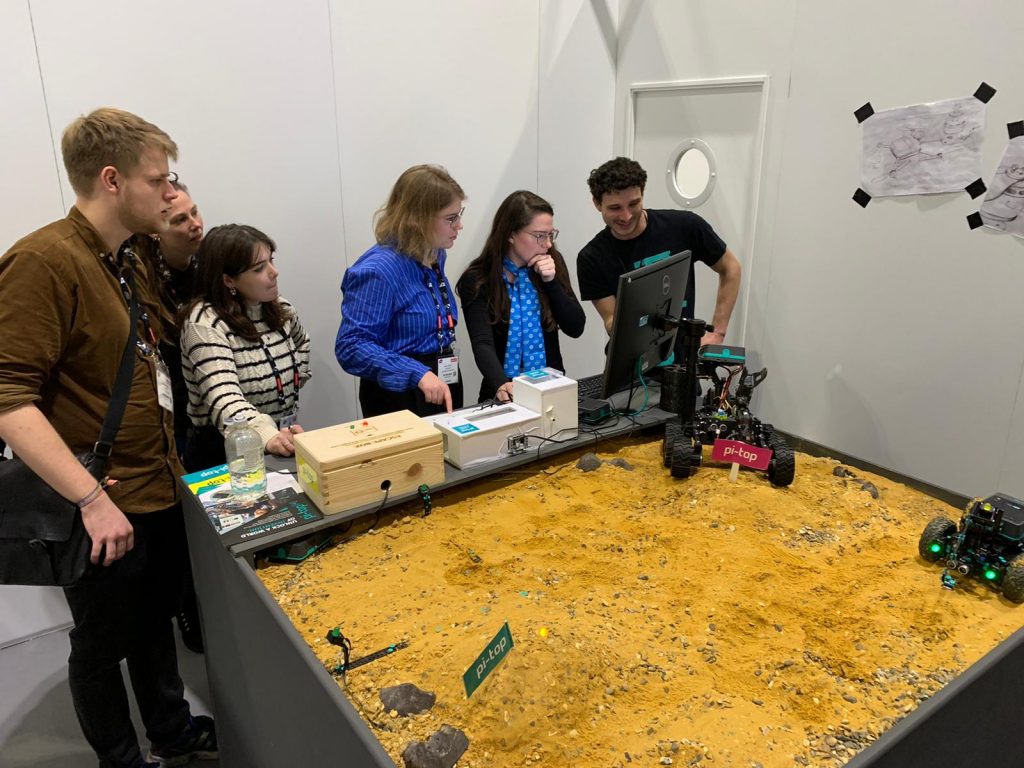
With the DMLL being prolific in its contribution towards gamification over the years and recently having Game Changers won the Gamification Award in Education and Learning category, the team are always finding new ways to adapt innovative tools and programmes to improve teaching and learning practices on an international scale.
During the event, the team came across an escape room implemented within the north exhibition hall; so it was only natural for them to check it out and solve numerous puzzles and riddles(!) After escaping from two of the three rooms, the team made their way to the final room which consisted of a Raspberry Pi operated Martian motor robot and a visual coding programme known as Scratch. Both tools had to be used in order to retrieve electric components to break a series of locks and prevent Mars from blowing up… and of course for the team to escape the room in good time.
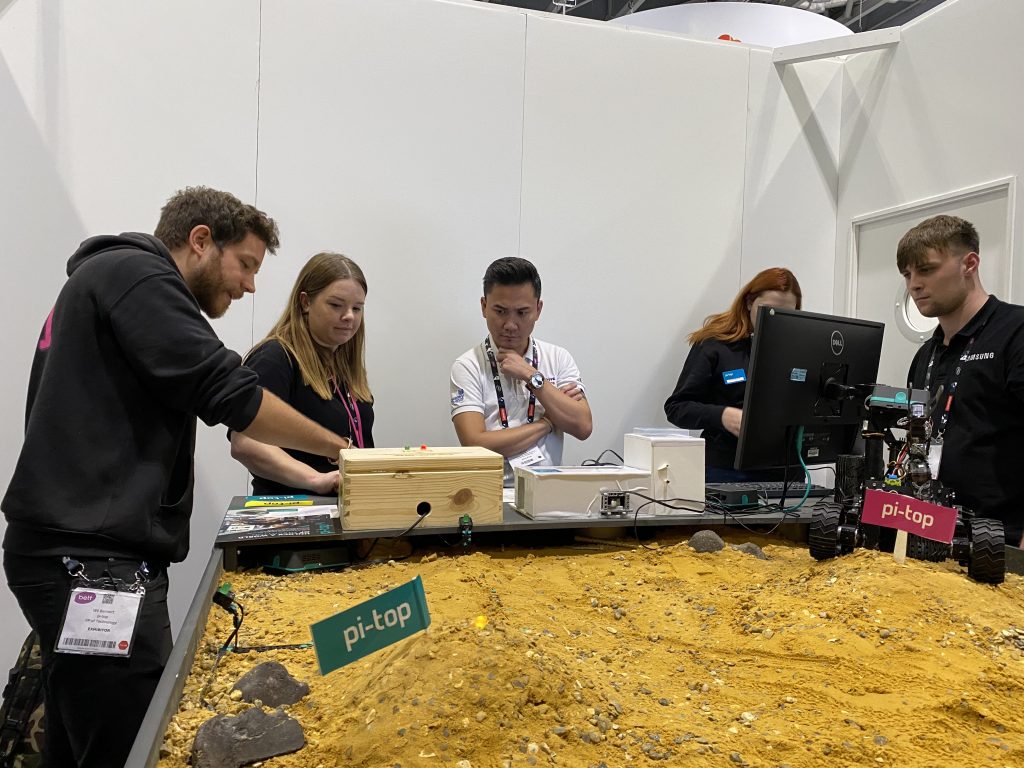
With a total of 8 minutes and 17 seconds, the team escaped the room and almost had the quickest time (almost)! Due to similarities between DMLL’s previous initiatives such as Beyond Flipped’s Mega Project: Mars Colony, and the technology demonstrated the BETT escape room; the Lab got chatting with the pi-top team, the facilitators of the last escape room. The Raspberry Pi motor introduced to participants in the third room was operated by pi-top [4], a programmable computing device which allows educators and students to create any project imaginable; from coding with Lego® to building computers. Foundation components are also available with the pi-top [4] to allow coders and makers to create an assignment set by their educator; or whatever they desire to build. Being able to integrate this into a teaching and learning environment would allow HE students access into real-life careers that require coding and programming knowledge, regardless if they’re proficient or not. Incorporate it all into an escape room setting as pi-top did and you have the ultimate team building and creative problem-solving activity possible in a learning space.
Friday
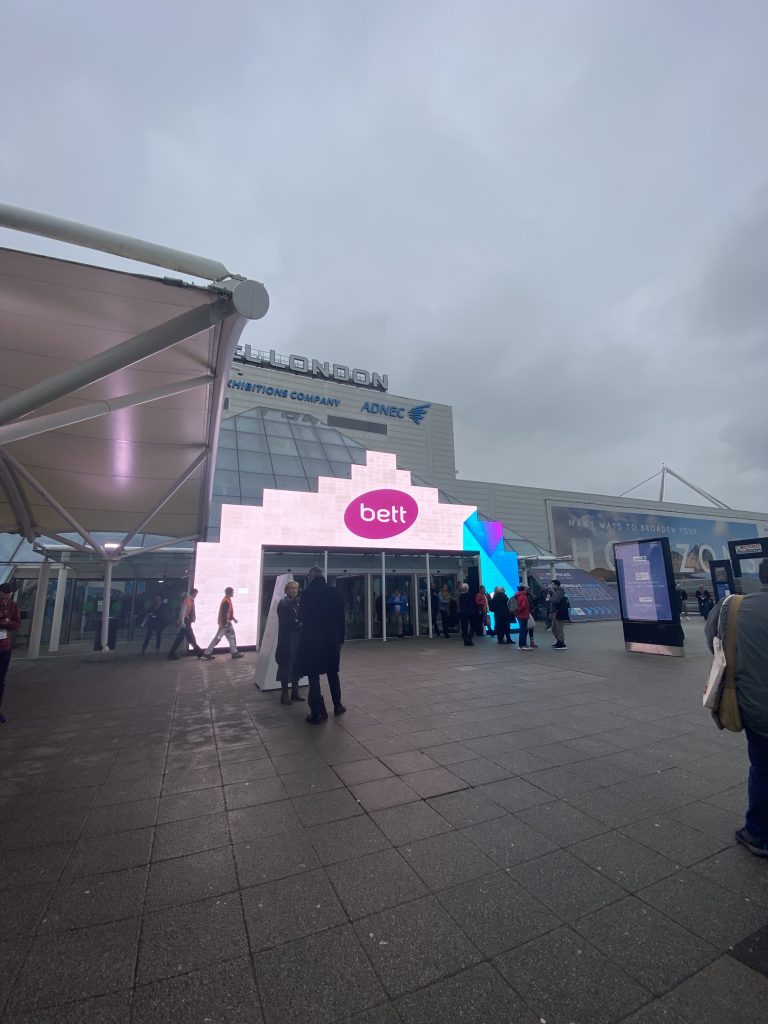
As Friday approached, a variety of talks and workshops were attended to cater to each person’s agenda, area of speciality and interests. A couple of keynotes that were attended within the BETT Arena were speakers Sophia Mavridi, Lecturer at De Montfort University, and Sugata Mitra, former Professor in Educational Technology at Newcastle University.
Sophia Mavridi’s keynote, ‘Digital Residents of the Distracted Generation? Helping Students to Manage Digital Distractions in the Classroom and Beyond’; focused on helping students manage digital distractions as a skill, whilst arguing for technology‘s revolutionary impact on teaching and learning. The Education sector across the world have taken drastic action to ban the use of mobile phones in the classroom, which did see an average of 6.4% increase in standardised tests in low-performing students in 2015; although, the findings did not discount that the use of mobile phones could be used as a learning tool if their use is properly structured. This research was found in ‘Ill Communication: Technology, Distraction & Student Performance’, Beland and Murphy, 2015.
Mavridi argued how the use of technology in the learning environment needs to be incorporated into the digital literacy framework to develop 21st Century skills further. She went into solutions and techniques based on her own research to allow teachers and students to experiment with the management of their digital distractions in a classroom. Debunking the myth ‘multitasking’, allowing devices in the classroom to teach procedures, promoting self-regulation techniques and applying the ‘Pomodoro technique’ were some examples of solutions Mavridi highlighted in her talk as being most effective when teaching 21st Century students’ boundaries of digital devices. She concluded that the banning and removal of devices would not improve a student’s ability to focus and manage digital technology in the long run, however, allowing education with such technology would empower people to manage digital distractions and function in highly complex environments.
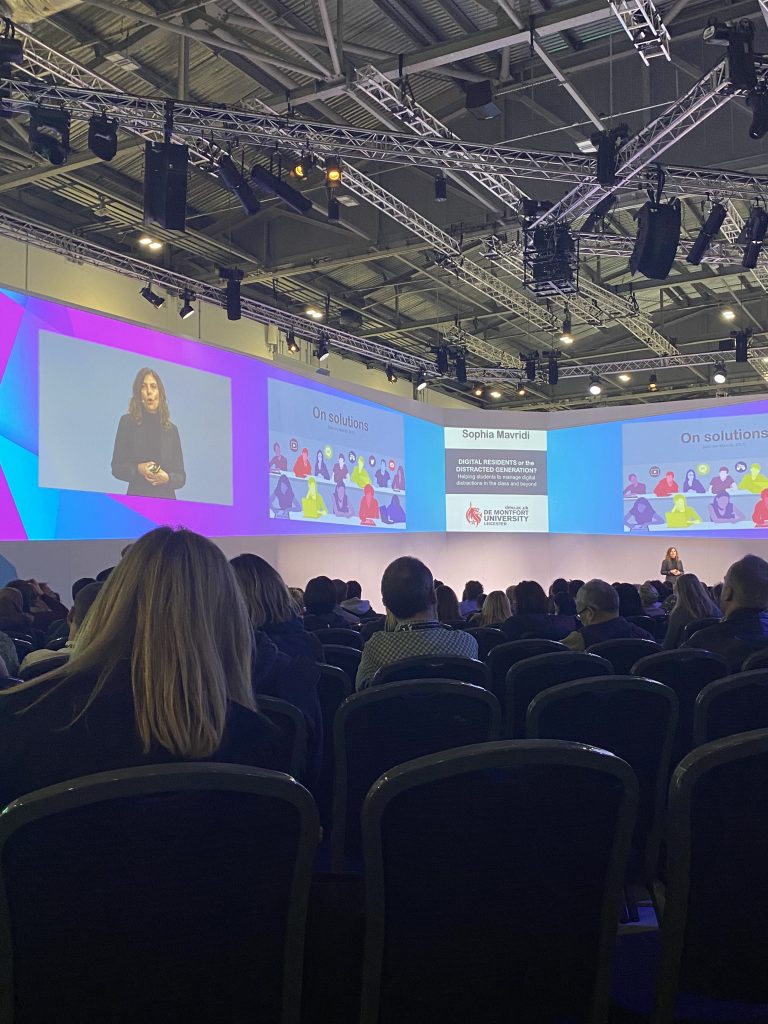
Sugata Mitra, a world-renowned TED award winner and keynote speaker, presented his work from the last 2 decades across the globe with his Hole in the Wall (HiW) project. HiW was an experiment conducted by Mitra himself in the 90s; he first installed a computer in a wall within the slums of Kalkaji, Delhi, for children of the local area to freely use and learn how to interact with the Internet under no supervision. Mitra found that children quickly adapted to the technology and started learning independently, this begun a new educational program known as ‘self-organised learning environments’ (SOLE).
Sometime after this initiative, ‘The School in the Cloud’ was developed and launched in seven labs across the world after winning the $1m TED Prize award in 2013. This was to create Mitra’s vision of providing an environment where a global community of educators could host their own SOLE and observe the impact that self-organised learning has on children, which he discovered improved their comprehension, communication and computing skills.
Mitra explained how pedagogy has become most effective since the Internet, and with the support of self-organising systems and spontaneous space being available to educators and children, this would allow them to seek to solve problems and find correct answers. From his experiments, he argues that education needs a new assessment system to embed the ability to learn and find accurate and current answers, stating that the Internet and collaboration must be allowed during assessments.
Overall
Across the two days, there was several innovative teaching and learning tools, methodologies, and solutions to consider for the future. BETT 2020 hosted and showcased tools originally designed for schools that can easily be adapted and made intuitive for any undergraduate or postgraduate student; whether it’s purely digital, blended or more practical based. It was insightful to see and hear a vast range of experiences and theories on bettering someone’s mental and practical development and knowledge; each speaker and company there had the same idea to break away from old, traditional classrooms for good and empower everyone with technology so they are able to transform and teach future generations.

